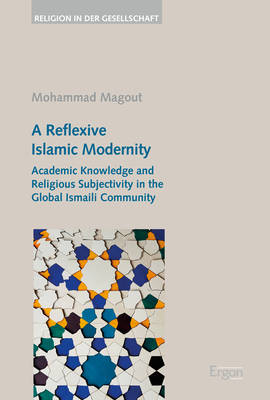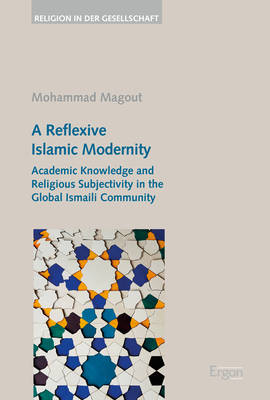
Bedankt voor het vertrouwen het afgelopen jaar! Om jou te bedanken bieden we GRATIS verzending (in België) aan op alles gedurende de hele maand januari.
- Afhalen na 1 uur in een winkel met voorraad
- In januari gratis thuislevering in België
- Ruim aanbod met 7 miljoen producten
Bedankt voor het vertrouwen het afgelopen jaar! Om jou te bedanken bieden we GRATIS verzending (in België) aan op alles gedurende de hele maand januari.
- Afhalen na 1 uur in een winkel met voorraad
- In januari gratis thuislevering in België
- Ruim aanbod met 7 miljoen producten
Zoeken
A Reflexive Islamic Modernity
Academic Knowledge and Religious Subjectivity in the Global Ismaili Community
Mohammad Magout
€ 45,95
+ 91 punten
Omschrijving
Nizari Ismailis are one of most active Muslim communities in academic education and knowledge production in the fields of Islamic studies and humanities. For this purpose, the community runs two academic institutions based in London: The Institute of Ismaili Studies and the Institute for the Study of Muslim Civilisations. Drawing on sociological approaches to religion and knowledge, this study examines the academic discourse of these two institutes an the religious subjectivities of their international body of students. It shows that the Ismaili community is navigating challenges along three axes: its relationship to secular modernity, to mainstream Islam, and to itself (its own history and identity). The Ismaili response to this three-dimensional challenge is interpreted as a process of reflexive modernization, whereby Islam is discursively reconceptualized as culture rather than religion and uncertainty is internalized into individual religious subjectivity.
Specificaties
Betrokkenen
- Auteur(s):
- Uitgeverij:
Inhoud
- Aantal bladzijden:
- 230
- Taal:
- Engels
- Reeks:
- Reeksnummer:
- nr. 47
Eigenschappen
- Productcode (EAN):
- 9783956506369
- Verschijningsdatum:
- 6/03/2020
- Uitvoering:
- Paperback
- Formaat:
- Trade paperback (VS)
- Afmetingen:
- 152 mm x 226 mm
- Gewicht:
- 340 g

Alleen bij Standaard Boekhandel
+ 91 punten op je klantenkaart van Standaard Boekhandel
Beoordelingen
We publiceren alleen reviews die voldoen aan de voorwaarden voor reviews. Bekijk onze voorwaarden voor reviews.









